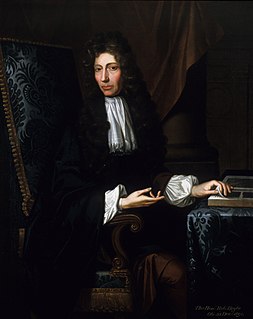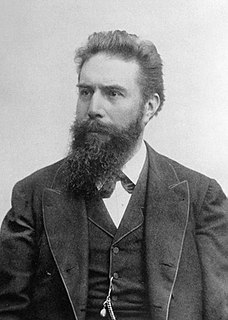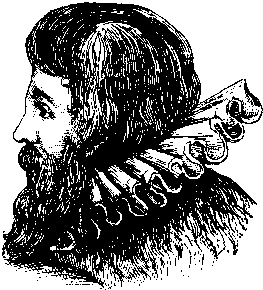A Quote by Robert Boyle
It is my intent to beget a good understanding between the chymists and the mechanical philosophers who have hitherto been too little acquainted with one another's learning.
Related Quotes
Röntgen has familiarized us with an order of vibrations of extreme minuteness compared with the smallest waves with which we have hitherto been acquainted, and of dimensions comparable with the distances between the centers of the atoms of which the material universe is built up; and there is no reason to suppose that we have here reached the limit of frequency.
When I first collected these authorities, I was desirous that every quotation should be useful to some other end than the illustration of a word; I therefore extracted from philosophers principles of science; from historians remarkable facts; from chymists complete processes; from divines striking exhortations; and from poets beautiful descriptions.
... hitherto we have been permitted to seek beauty only in the morally good - a fact which sufficiently accounts for our having found so little of it and having had to seek about for imaginary beauties without backbone! - As surely as the wicked enjoy a hundred kinds of happiness of which the virtuous have no inkling, so too they possess a hundred kinds of beauty; and many of them have not yet been discovered.
The world is full of men and women who work too much, sleep too little, hardly ever exercise, eat poorly, and are always struggling or failing to find adequate time with their families. We are in a perpetual hurry-constantly rushing from one activity to another, with little understanding of where all this activity is leading us. . . . The world has gone and got itself in an awful rush, to whose benefit I do not know. We are too busy for our own good. We need to slow down. Our lifestyles are destroying us. The worst part is, we are rushing east in search of a sunset.
I have been one acquainted with the night. I have walked out in rain - and back in rain. I have out walked the furthest city light. I have looked down the saddest city lane. I have passed by the watchman on his beat And dropped my eyes, unwilling to explain. I have stood still and stopped the sound of feet. When far away an interrupted cry Came over houses from another street, But not to call me back or say good-bye; And further still at an unearthly light, One luminary clock against the sky Proclaimed the time was neither wrong nor right. I have been one acquainted with the night.
With this book in my hands, reading aloud to my friends, questioning them, explaining to them, I was made clearly to understand that I had no friends, that I was alone in the world. Because in not understanding the meaning of the words, neither I nor my friends, one thing became very clear and that was that there were ways of not understanding and that the difference between the non-understanding of one individual and the non-understanding of another created a world of terra firma even more solid than differences of understanding.






































